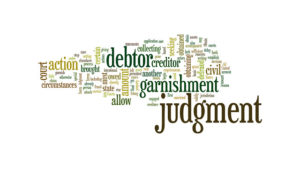IRS Wage Garnishment Help
Can My Employer Fire Me Because Of My IRS Wage Garnishment?

Absolutely not.
Though tax garnishment may strain the employer/employee relationship, federal law prohibits an employer from firing an employee due to the issuance of a wage garnishment or administrative levy.
Federal law imposes a fine of up to $1,000 and imprisonments for as much as one year should an employer intentionally terminate an employee because of the garnishment of an employee’s earnings.
IRS Wage Garnishment or Administrative Levy
If you are like many people and are dealing with the financial difficulties of the present economy and are unable to pay your taxes, you could face an IRS wage garnishment. A wage garnishment is an enforcement action that the IRS sends to your employer to notify and order your employer to withhold a significant portion of your paycheck. That money is then redirected to the IRS as payment on taxes you owe.
Though it may seem surprising that your wages could be taken from you, wage garnishment is one of the more typical means used to pay off a debt. While there are many types of wage garnishment, (e.g., child support, defaulted student loans, taxes and unpaid court fines) dealing with an IRS wage garnishment is perhaps the most challenging. Why? As a federal agency, the Internal Revenue Service often has priority over state tax garnishment and also credit card garnishment.
A more common term that the IRS uses for wage garnishment is“administrative levy.” An IRS levy, is a serious matter because it requires no court order and allows the IRS to take or seize your property (including your wages). In fact, to begin garnishing your wages, all the IRS need do is:
- Assess your taxes and send you a written “Notice and Demand for Payment”;
- Note if you have not paid or refused to pay your taxes within the time ordered in the notice; and
- Send you a “Final Notice of Intent to Levy and Notice of Your Right to a Hearing (levy notice) at least 30 days before the levy.
You might think that the IRS would be required to make sure that you actually receive such a life impacting notice such as a wage garnishment levy, but this is not the case. Even if you do not get the notice, it is still effective! The only obligations the federal government has are to serve the Final Notice in person, (leave the notice at your home or usual place of business) or deliver it by certified or registered mail – to your last known address. What happens if the last known address that the IRS has is no longer where you live? The truth is many taxpayers may never actually receive the final notice!
A worst case scenario could be that you don’t receive the notice of the tax levy, and the first time you learn of the wage garnishment is when your employer tells you about it or begins deducting the IRS’s demanded amount from your salary. This would be, as the expression goes, a very “rude awakening.” Certainly, most people would want to avoid these negative circumstances and get tax help to stop their wages from being garnished before their employer was notified about it.

What is the Limit a Wage Garnishment Can Take?
The amount the IRS can garnish from your wages could vary depending on the state you live in and if you have obtained any exemptions. For instance, in Florida, if you provide over half of the support for a child or other dependent, you may be exempt from garnishment altogether (though this is subject to waiver).
Additionally, the law allows a debtor the right to keep more of his or her wages if the garnishment would create an economic hardship.
When Does IRS Wage Garnishment Stop?
Your wages can be garnished without the IRS taking further action (after the original levy) until it releases the wage garnishment levy or until the unpaid or back tax amount due is totally paid off. However, if money in your bank account has been garnished or seized to pay taxes, and you make deposits after the date of the levy, the IRS must take additional actions to seize more money from your bank.
